You are using an outdated browser. Upgrade your browser today or install Google Chrome Frame to better experience this site.

Canada Traveler View
Travel health notices, vaccines and medicines.
- Non-Vaccine-Preventable Diseases
Stay Healthy and Safe
- Packing List
After Your Trip
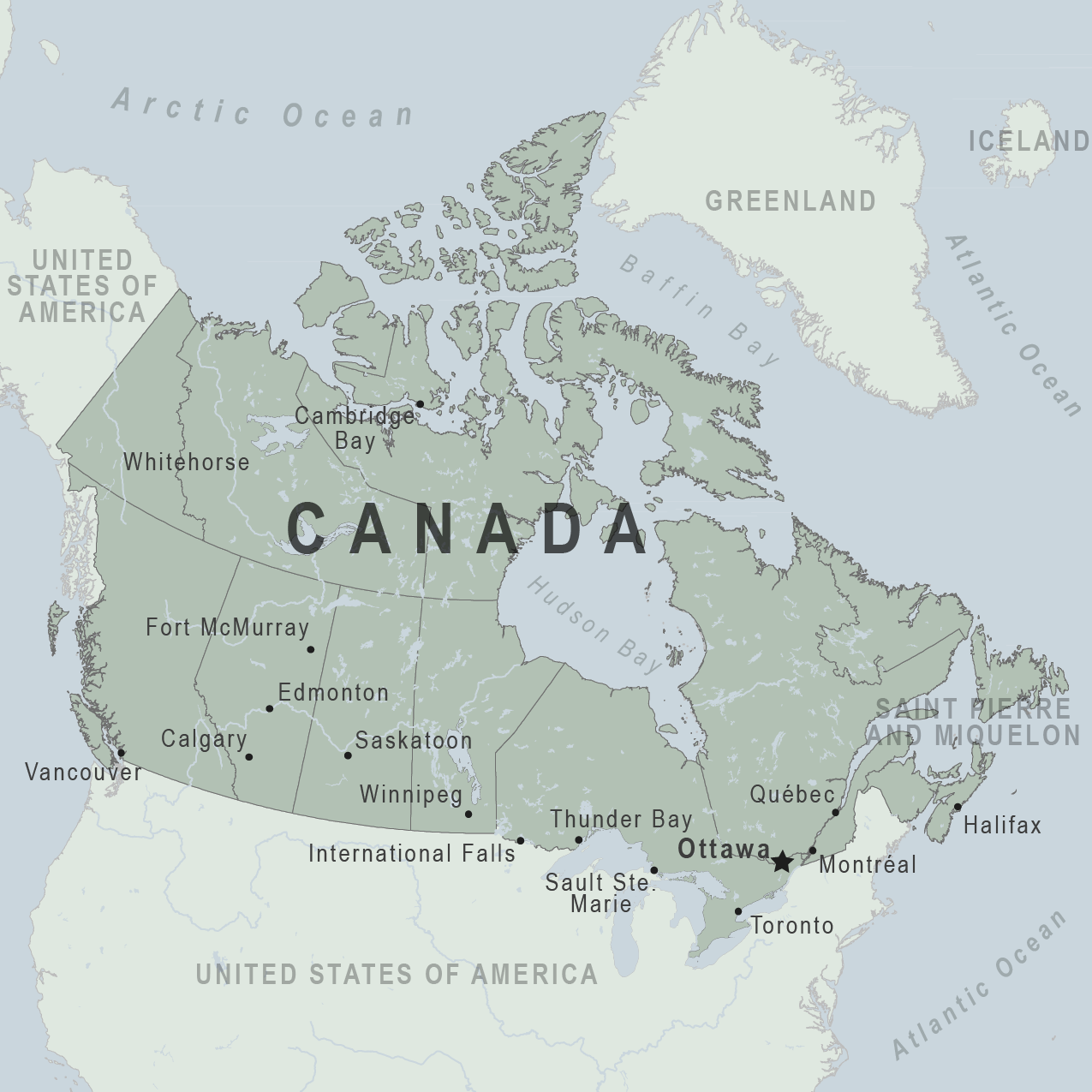
There are no notices currently in effect for Canada.
⇧ Top
Check the vaccines and medicines list and visit your doctor at least a month before your trip to get vaccines or medicines you may need. If you or your doctor need help finding a location that provides certain vaccines or medicines, visit the Find a Clinic page.
Routine vaccines
Recommendations.
Make sure you are up-to-date on all routine vaccines before every trip. Some of these vaccines include
- Chickenpox (Varicella)
- Diphtheria-Tetanus-Pertussis
- Flu (influenza)
- Measles-Mumps-Rubella (MMR)
Immunization schedules
All eligible travelers should be up to date with their COVID-19 vaccines. Please see Your COVID-19 Vaccination for more information.
COVID-19 vaccine
Hepatitis A
Consider hepatitis A vaccination for most travelers. It is recommended for travelers who will be doing higher risk activities, such as visiting smaller cities, villages, or rural areas where a traveler might get infected through food or water. It is recommended for travelers who plan on eating street food.
Hepatitis A - CDC Yellow Book
Dosing info - Hep A
Hepatitis B
Recommended for unvaccinated travelers younger than 60 years old traveling to Canada. Unvaccinated travelers 60 years and older may get vaccinated before traveling to Canada.
Hepatitis B - CDC Yellow Book
Dosing info - Hep B
Cases of measles are on the rise worldwide. Travelers are at risk of measles if they have not been fully vaccinated at least two weeks prior to departure, or have not had measles in the past, and travel internationally to areas where measles is spreading.
All international travelers should be fully vaccinated against measles with the measles-mumps-rubella (MMR) vaccine, including an early dose for infants 6–11 months, according to CDC’s measles vaccination recommendations for international travel .
Measles (Rubeola) - CDC Yellow Book
Canada is free of dog rabies. However, rabies may still be present in wildlife species, particularly bats. CDC recommends rabies vaccination before travel only for people working directly with wildlife. These people may include veterinarians, animal handlers, field biologists, or laboratory workers working with specimens from mammalian species.
Rabies - CDC Yellow Book
Learn actions you can take to stay healthy and safe on your trip. Vaccines cannot protect you from many diseases in Canada, so your behaviors are important.
Eat and drink safely
Food and water standards around the world vary based on the destination. Standards may also differ within a country and risk may change depending on activity type (e.g., hiking versus business trip). You can learn more about safe food and drink choices when traveling by accessing the resources below.
- Choose Safe Food and Drinks When Traveling
- Water Treatment Options When Hiking, Camping or Traveling
- Global Water, Sanitation and Hygiene | Healthy Water
- Avoid Contaminated Water During Travel
You can also visit the Department of State Country Information Pages for additional information about food and water safety.
Prevent bug bites
Although Canada is an industrialized country, bug bites here can still spread diseases. Just as you would in the United States, try to avoid bug bites while spending time outside or in wooded areas.
What can I do to prevent bug bites?
- Cover exposed skin by wearing long-sleeved shirts, long pants, and hats.
- Use an appropriate insect repellent (see below).
- Consider using permethrin-treated clothing and gear if spending a lot of time outside. Do not use permethrin directly on skin.
What type of insect repellent should I use?
- FOR PROTECTION AGAINST TICKS AND MOSQUITOES: Use a repellent that contains 20% or more DEET for protection that lasts up to several hours.
- Picaridin (also known as KBR 3023, Bayrepel, and icaridin)
- Oil of lemon eucalyptus (OLE) or para-menthane-diol (PMD)
- 2-undecanone
- Always use insect repellent as directed.
What should I do if I am bitten by bugs?
- Avoid scratching bug bites, and apply hydrocortisone cream or calamine lotion to reduce the itching.
- Check your entire body for ticks after outdoor activity. Be sure to remove ticks properly.
What can I do to avoid bed bugs?
Although bed bugs do not carry disease, they are an annoyance. See our information page about avoiding bug bites for some easy tips to avoid them. For more information on bed bugs, see Bed Bugs .
For more detailed information on avoiding bug bites, see Avoid Bug Bites .
Stay safe outdoors
If your travel plans in Canada include outdoor activities, take these steps to stay safe and healthy during your trip:
- Stay alert to changing weather conditions and adjust your plans if conditions become unsafe.
- Prepare for activities by wearing the right clothes and packing protective items, such as bug spray, sunscreen, and a basic first aid kit.
- Consider learning basic first aid and CPR before travel. Bring a travel health kit with items appropriate for your activities.
- If you are outside for many hours in the heat, eat salty snacks and drink water to stay hydrated and replace salt lost through sweating.
- Protect yourself from UV radiation : use sunscreen with an SPF of at least 15, wear protective clothing, and seek shade during the hottest time of day (10 a.m.–4 p.m.).
- Be especially careful during summer months and at high elevation. Because sunlight reflects off snow, sand, and water, sun exposure may be increased during activities like skiing, swimming, and sailing.
- Very cold temperatures can be dangerous. Dress in layers and cover heads, hands, and feet properly if you are visiting a cold location.
Stay safe around water
- Swim only in designated swimming areas. Obey lifeguards and warning flags on beaches.
- Do not dive into shallow water.
- Avoid swallowing water when swimming. Untreated water can carry germs that make you sick.
- Practice safe boating—follow all boating safety laws, do not drink alcohol if you are driving a boat, and always wear a life jacket.
Keep away from animals
Most animals avoid people, but they may attack if they feel threatened, are protecting their young or territory, or if they are injured or ill. Animal bites and scratches can lead to serious diseases such as rabies.
Follow these tips to protect yourself:
- Do not touch or feed any animals you do not know.
- Do not allow animals to lick open wounds, and do not get animal saliva in your eyes or mouth.
- Avoid rodents and their urine and feces.
- Traveling pets should be supervised closely and not allowed to come in contact with local animals.
- If you wake in a room with a bat, seek medical care immediately. Bat bites may be hard to see.
All animals can pose a threat, but be extra careful around dogs, bats, monkeys, sea animals such as jellyfish, and snakes. If you are bitten or scratched by an animal, immediately:
- Wash the wound with soap and clean water.
- Go to a doctor right away.
- Tell your doctor about your injury when you get back to the United States.
Reduce your exposure to germs
Follow these tips to avoid getting sick or spreading illness to others while traveling:
- Wash your hands often, especially before eating.
- If soap and water aren’t available, clean hands with hand sanitizer (containing at least 60% alcohol).
- Don’t touch your eyes, nose, or mouth. If you need to touch your face, make sure your hands are clean.
- Cover your mouth and nose with a tissue or your sleeve (not your hands) when coughing or sneezing.
- Try to avoid contact with people who are sick.
- If you are sick, stay home or in your hotel room, unless you need medical care.
Avoid sharing body fluids
Diseases can be spread through body fluids, such as saliva, blood, vomit, and semen.
Protect yourself:
- Use latex condoms correctly.
- Do not inject drugs.
- Limit alcohol consumption. People take more risks when intoxicated.
- Do not share needles or any devices that can break the skin. That includes needles for tattoos, piercings, and acupuncture.
- If you receive medical or dental care, make sure the equipment is disinfected or sanitized.
Know how to get medical care while traveling
Plan for how you will get health care during your trip, should the need arise:
- Carry a list of local doctors and hospitals at your destination.
- Review your health insurance plan to determine what medical services it would cover during your trip. Consider purchasing travel health and medical evacuation insurance for things your regular insurance will not cover.
- Carry a card that identifies, in the local language, your blood type, chronic conditions or serious allergies, and the generic names of any medicines you take.
- Bring copies of your prescriptions for medicine and for eye glasses and contact lenses.
- Some prescription drugs may be illegal in other countries. Call Canada’s embassy to verify that all of your prescription(s) are legal to bring with you.
- Bring all the medicines (including over-the-counter medicines) you think you might need during your trip, including extra in case of travel delays. Ask your doctor to help you get prescriptions filled early if you need to.
Many foreign hospitals and clinics are accredited by the Joint Commission International. A list of accredited facilities is available at their website ( www.jointcommissioninternational.org ).
Select safe transportation
Motor vehicle crashes are the #1 killer of healthy US citizens in foreign countries.
Be smart when you are traveling on foot.
- Use sidewalks and marked crosswalks.
- Pay attention to the traffic around you, especially in crowded areas.
- Remember, people on foot do not always have the right of way in other countries.
Riding/Driving
Choose a safe vehicle.
- Choose official taxis or public transportation, such as trains and buses.
- Make sure there are seatbelts.
- Avoid overcrowded, overloaded, top-heavy buses and minivans.
- Avoid riding on motorcycles or motorbikes, especially motorbike taxis. (Many crashes are caused by inexperienced motorbike drivers.)
- Choose newer vehicles—they may have more safety features, such as airbags, and be more reliable.
- Choose larger vehicles, which may provide more protection in crashes.
Think about the driver.
- Do not drive after drinking alcohol or ride with someone who has been drinking.
- Consider hiring a licensed, trained driver familiar with the area.
- Arrange payment before departing.
Follow basic safety tips.
- Wear a seatbelt at all times.
- Sit in the back seat of cars and taxis.
- When on motorbikes or bicycles, always wear a helmet. (Bring a helmet from home, if needed.)
- Do not use a cell phone or text while driving (illegal in many countries).
- Travel during daylight hours only, especially in rural areas.
- If you choose to drive a vehicle in Canada, learn the local traffic laws and have the proper paperwork.
- Get any driving permits and insurance you may need. Get an International Driving Permit (IDP). Carry the IDP and a US-issued driver's license at all times.
- Check with your auto insurance policy's international coverage, and get more coverage if needed. Make sure you have liability insurance.
- Avoid using local, unscheduled aircraft.
- If possible, fly on larger planes (more than 30 seats); larger airplanes are more likely to have regular safety inspections.
- Try to schedule flights during daylight hours and in good weather.
Helpful Resources
Road Safety Overseas (Information from the US Department of State): Includes tips on driving in other countries, International Driving Permits, auto insurance, and other resources.
The Association for International Road Travel has country-specific Road Travel Reports available for most countries for a minimal fee.
Maintain personal security
Use the same common sense traveling overseas that you would at home, and always stay alert and aware of your surroundings.
Before you leave
- Research your destination(s), including local laws, customs, and culture.
- Monitor travel advisories and alerts and read travel tips from the US Department of State.
- Enroll in the Smart Traveler Enrollment Program (STEP) .
- Leave a copy of your itinerary, contact information, credit cards, and passport with someone at home.
- Pack as light as possible, and leave at home any item you could not replace.
While at your destination(s)
- Carry contact information for the nearest US embassy or consulate .
- Carry a photocopy of your passport and entry stamp; leave the actual passport securely in your hotel.
- Follow all local laws and social customs.
- Do not wear expensive clothing or jewelry.
- Always keep hotel doors locked, and store valuables in secure areas.
- If possible, choose hotel rooms between the 2nd and 6th floors.
Healthy Travel Packing List
Use the Healthy Travel Packing List for Canada for a list of health-related items to consider packing for your trip. Talk to your doctor about which items are most important for you.
Why does CDC recommend packing these health-related items?
It’s best to be prepared to prevent and treat common illnesses and injuries. Some supplies and medicines may be difficult to find at your destination, may have different names, or may have different ingredients than what you normally use.
If you are not feeling well after your trip, you may need to see a doctor. If you need help finding a travel medicine specialist, see Find a Clinic . Be sure to tell your doctor about your travel, including where you went and what you did on your trip. Also tell your doctor if you were bitten or scratched by an animal while traveling.
For more information on what to do if you are sick after your trip, see Getting Sick after Travel .
Map Disclaimer - The boundaries and names shown and the designations used on maps do not imply the expression of any opinion whatsoever on the part of the Centers for Disease Control and Prevention concerning the legal status of any country, territory, city or area or of its authorities, or concerning the delimitation of its frontiers or boundaries. Approximate border lines for which there may not yet be full agreement are generally marked.
Other Destinations
If you need help finding travel information:
Message & data rates may apply. CDC Privacy Policy
File Formats Help:
- Adobe PDF file
- Microsoft PowerPoint file
- Microsoft Word file
- Microsoft Excel file
- Audio/Video file
- Apple Quicktime file
- RealPlayer file
- Zip Archive file
Exit Notification / Disclaimer Policy
- The Centers for Disease Control and Prevention (CDC) cannot attest to the accuracy of a non-federal website.
- Linking to a non-federal website does not constitute an endorsement by CDC or any of its employees of the sponsors or the information and products presented on the website.
- You will be subject to the destination website's privacy policy when you follow the link.
- CDC is not responsible for Section 508 compliance (accessibility) on other federal or private website.
We’re sorry, this site is currently experiencing technical difficulties. Please try again in a few moments. Exception: request blocked
Language selection
- Français fr
I am an American citizen. What do I need to enter Canada?
American citizens, including American-Canadian citizens, must carry proper identification and meet the basic requirements to enter Canada . You do not need a Canadian passport, a Canadian visa or an eTA to enter Canada if you are travelling with a valid U.S. passport.
New entry requirement now in effect
Visa-exempt foreign nationals need an Electronic Travel Authorization (eTA) to fly to or transit through Canada by air. Exceptions include U.S. citizens and travellers with a valid Canadian visa. Canadian citizens, including dual citizens , and Canadian permanent residents cannot apply for an eTA.
Did you find what you were looking for?
If not, tell us why:
You will not receive a reply. Telephone numbers and email addresses will be removed. Maximum 300 characters
Thank you for your feedback
Answers others found useful
- Do I need a visa to visit Canada?
- Do I need a Canadian visa if I have a United States visa?
- How do I apply for an eTA for travel to Canada?
- I am visiting the U.S. I want to come to Canada. Do I need an eTA?
- Do I need a visa if I am travelling through Canada without stopping or visiting?
- How do I help a family member or friend apply to visit Canada?
- I am travelling with my minor child without my spouse. What documents must I present?
- What’s the difference between a visitor visa and a visitor record?
- Do I need to apply for both a visitor visa and an eTA?

How to videos
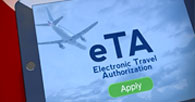
Glossary term
- Admissibility
- Skip to main content
- Skip to site information
Language selection
Help us to improve our website. Take our survey !
Entering Canada
On this page, by private boat, required identification, permanent residents, travelling with children, you and the border services officer.
Whether you’re returning home or visiting, you’ll follow the same 3 steps to enter Canada:
Step 1. Pre-arrival: Use Advance Declaration or complete a Declaration Card
If you’re arriving by air at one of Canada’s participating international airports, you can save time at the border. Submit your customs and immigration declaration online using Advance Declaration up to 72 hours before you arrive in Canada.
If you choose not to submit your declaration in advance, you can complete it at an airport kiosk or eGate. If you’re landing at an airport without kiosks or eGates, you’ll receive a Declaration Card on board the aircraft or other conveyance. Read the instructions and complete the card before you arrive. Have it ready to present to Canadian officials at the airport, along with your identification and other travel documents. If you're travelling with children, please have their documentation ready as well.
If using a Declaration Card, detach and discard the instructions. To help us serve you faster, do not fold the card.
Everyone arriving in Canada must complete a declaration. You can list up to 4 people living at the same residence on one card, or 8 people per Advance Declaration submission.
The Declaration Card or Advance Declaration submission tells us what we need to know about you, your travels and what you’re bringing into the country.
Connecting to another flight
If you’re connecting to another flight or travelling on to another destination and re-boarding the same plane, follow the signs. At some airports, you may have to check your baggage and have it screened again.
If you travel frequently our trusted traveller programs can help
If you're a member of a trusted traveller program, you can skip Step 2 and go directly to the automated kiosks or eGates for faster processing.
Step 2. Arrival: First CBSA checkpoint
When you arrive at the terminal, follow the signs to the first Canada Border Services Agency (CBSA) checkpoint, also called “primary inspection.”
If you used Advance Declaration, go to a kiosk or eGate to retrieve your confirmed declaration receipt. Up to 5 people may use a kiosk as a group upon arrival.
Next, a border services officer will examine your:
- Declaration Card or Advance Declaration kiosk receipt
- your identification
- other travel documents
The officer may ask you a series of questions to determine:
- your immigration status
- the type of any goods you're bringing with you
- your duty-free allowance
- your personal exemption entitlements
Goods not properly declared that are restricted or prohibited in Canada can, under the law, be seized.
Newcomer or coming to Canada to study or work
If you’re a newcomer to Canada, coming to study or work in Canada, you may need to present further documentation. The officer will help guide you through this process. You may ask the officer for help if you don’t speak English or French well.
Step 3. Baggage and second CBSA checkpoint
Go to the baggage claim area. If you must pay duty and taxes, you can pay at most major airports while waiting for your luggage.
Once you’ve picked up your luggage:
- go to the next CBSA checkpoint
- Declaration Card, Advance Declaration kiosk or eGate receipt
- receipt, if you paid duty and taxes for your goods
The officer may direct you to a secondary inspection area.
Here, officers may ask you:
- for detailed information about your travels
- to present your luggage and goods for examination
This is a normal part of the travelling process. Your cooperation is appreciated and helps us ensure the safety of Canada, its economy and its residents.
If you’re arriving by land, follow the signs to the first checkpoint, also called “primary inspection.” Here, a border services officer will examine your identification and other travel documents and take your verbal declaration.
Visit U.S. to Canada border wait times for estimated wait times at certain locations.
If you’re arriving by private boat, go directly to a designated marine telephone reporting site and call the CBSA Telephone Reporting Centre (TRC) at 1-888-226-7277 to obtain clearance.
Private boaters that meet certain conditions may report to the CBSA by calling the TRC using cell phone from their location in Canadian waters.
Learn more about reporting requirements for private boaters.
Make sure you carry proper identification for yourself and any children travelling with you to help confirm your legal right to enter Canada. Canada has introduced a new entry requirement, known as an Electronic Travel Authorization (eTA), for certain international travellers who fly to Canada.
Read about the changes and how they may affect you.
The Government of Canada recommends that Canadian citizens travel with a valid Canadian passport because it’s the only reliable and universally accepted travel and identification document available to Canadians for the purpose of international travel.
International transportation companies such as airlines may require travellers to present a passport before boarding. Canadian citizens may face delays or may not be allowed to board the plane or other conveyance if they present other documents such as a:
- Enhanced Driver's License (EDL)/Enhanced Identification Card (EIC)
- NEXUS card (used where the program is available)
- Free and Secure Trade (FAST) card used in FAST lanes
- Canadian citizenship card
- Certificate of Indian Status
- Birth certificate in combination with either a driver's licence or a government-issued photo identification
Permanent residents (immigrants living in Canada who are not yet Canadian citizens) need a valid permanent resident card to return to Canada. Check the expiry date on your card.
Note that a Certificate of Canadian Citizenship is not a travel document.
See Canadian Citizenship for further details.
Parents who share custody of their children should bring copies of the legal custody documents to the border when travelling with their children.
A consent letter should be used for all cross-border travel when a child is travelling:
- with only 1 parent or guardian
- in the care of friends or relatives
- with a group, such as a sports, school, musical or religious group
Example of a consent letter to permit travel by a child with a single custodian or parent.
When travelling with a group of vehicles, parents or guardians should arrive at the border in the same vehicle as the children.
Adults who aren’t parents or guardians should have written permission from the parents or guardians to supervise the children. The consent letter should include addresses and telephone numbers where the parents or guardian can be reached.
Border officers watch for missing children, and may ask detailed questions about the children who are travelling with you.
You may occasionally find yourself going through a more detailed inspection. In some cases, this simply means that you may have to complete a form. In other cases, the border services officer will need to identify the goods you’re bringing into the country or examine your luggage.
Border services officers are legally entitled to examine your luggage as part of their responsibility to protect Canada's safety, economy and environment. You are responsible for opening, unpacking and repacking your luggage.
By making your goods easily accessible for inspection and having your receipts handy, you will be helping the CBSA to help you. It’s a good idea to keep all your receipts for accommodation and purchases, and for any repairs done to, or parts bought for, your vehicle. The border services officer may ask to see them as evidence of the length of your stay and of the value of the goods or repairs.
If you disagree with the amount of duty and taxes that you have to pay, please ask to speak with the CBSA superintendent on duty. A consultation can often resolve the issue quickly and without cost. If you’re still not satisfied, our officers can tell you how to make a formal appeal.
Border services officers may arrest an individual for an offence under the Criminal Code (for example, impaired driving, outstanding arrest warrants, stolen property, abductions/kidnappings) and for infractions under other acts of Parliament (for example, the Customs Act , the Immigration and Refugee Protection Act ).
If you’re arrested, you may be compelled to attend court in Canada. You should note that anyone arrested in Canada is protected by and will be treated in accordance with the Canadian Charter of Rights and Freedoms .
Related links
- Bringing goods to Canada
- Traveller entry requirements
- Travel documents
- Programs for trusted travellers
- Travelling as a dual citizen
More Canadian provinces now require vaccine passports - here's what to know before traveling

Sep 15, 2021 • 6 min read
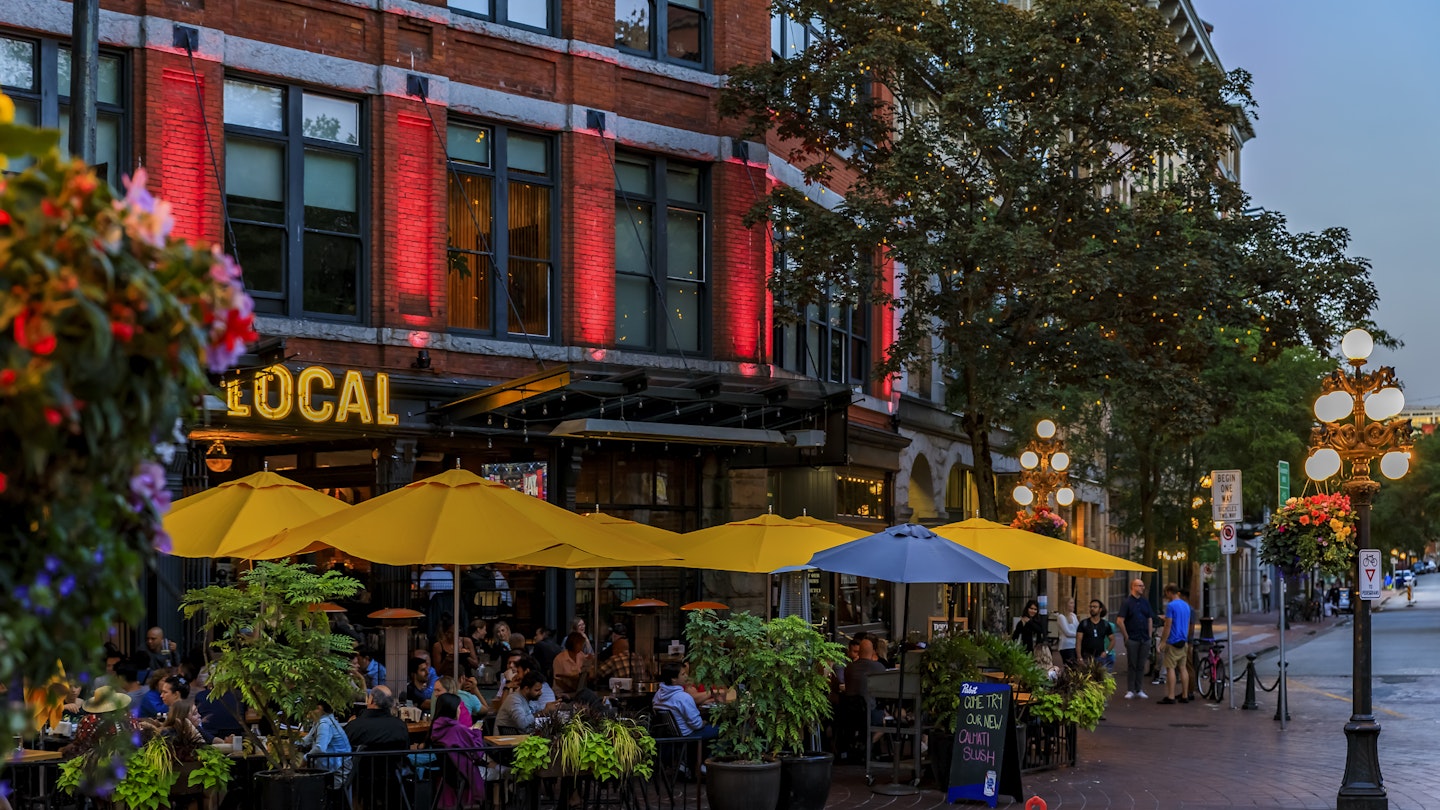
Vaccine passports are increasingly required across Canada © Marc Dufresne/Getty Images/iStock
Ontario and British Columbia are the latest Canadian provinces to mandate vaccine passports as a condition of entry to restaurants, entertainment and leisure venues. It comes a week after Canada opened to fully vaccinated international travelers as it further relaxed its COVID-19 border rules.
Now the doors are open, tourists are gradually returning to explore Canada's cities, national parks, mountains, islands and forests after months of shutdowns. But across the country, public health policies are returning as provinces see an uptick in COVID-19 cases. So before you dig out your passport and jump online to book flights, here are some things to consider while planning a trip there.

Traveling to Canada? Here's what you need
The main requirement to enter Canada is for travelers to be fully vaccinated. Canada currently accepts the Pfizer, Moderna, AstraZeneca and Johnson & Johnson vaccines from visitors. Those who are vaccinated can travel safely two weeks after their final dose, or two weeks after their one-shot Johnson & Johnson vaccine.
Travelers will also be required to present a negative COVID-19 result from a test taken within 72 hours of their departure—regardless of their vaccination status—and must present the results before boarding their flight. They're also asked to provide their proof of vaccination, test results and contact information through the ArriveCAN mobile app , a web-based form or a paper form, within three days of departure, and some may be randomly selected to a screening at the border to assess their potential risk to public health.
If your proof of vaccination is in a language other than English or French, you must obtain a certified translation into English or French and upload this certified translation in place of the original document.
Can unvaccinated children visit Canada?
Fully vaccinated parents or guardians will be allowed to bring unvaccinated children under 12 years of age to Canada, but those children will still be required to take a COVID-19 test upon arrival.
Read more: Do I need a visa to visit Canada?
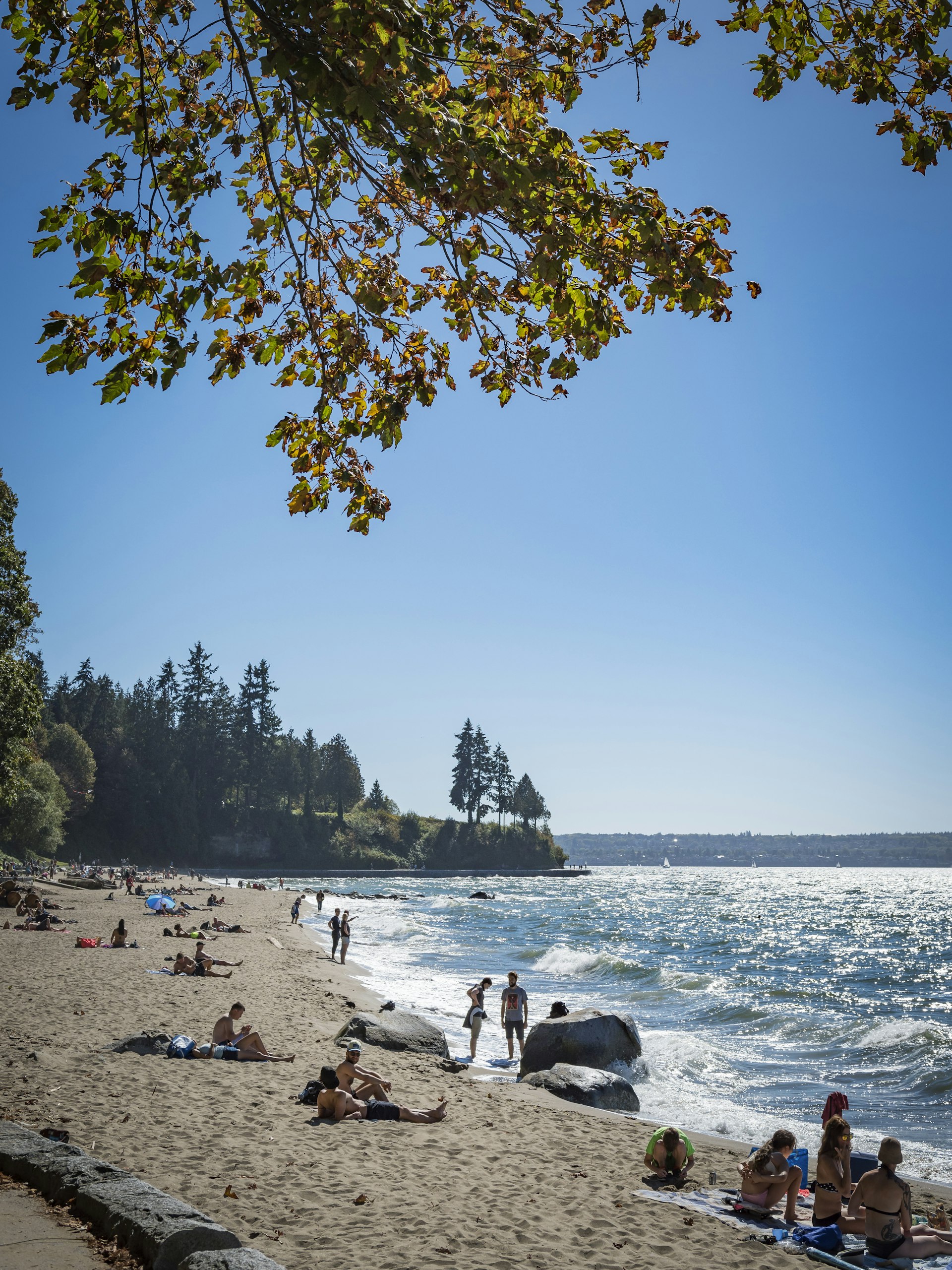
Will I have to quarantine when I arrive in Canada?
No, fully vaccinated travelers won’t need to quarantine upon their arrival. However, the government advised visitors to have a two-week quarantine plan in place in case officials determine they don’t meet all of Canada’s pandemic border requirements.
Read more: Why do I need to have a "suitable quarantine plan" to travel to Canada?
Current COVID-19 rules in Canada
Province entry rules.
Lockdowns began to lift in late spring, but with the Delta variant circulating widely some public health measures are in place and generally vary between provinces and territories, so check the government’s resource page for destination-specific information. Newfoundland and Labrador , for example, require visitors to fill in an additional travel form before their trip, as does Nova Scotia (see here ). Also, it's important to be aware that some Indigenous communities are not accepting visitors at this time.
Read more: 15 best places to visit in Canada

Vaccine passports
Hotels have reopened with enhanced cleaning protocols, and in some regions restaurants and bars are also welcoming guests for both outdoor and indoor service, though some have strict entry rules in place. In Québec and Manitoba , for instance, customers must show proof of vaccination to enter restaurants, bars, gyms, concerts, sporting events and movie theaters.
In British Columbia, people must be at least partially vaccinated (one dose) to enter restaurants, bars, nightclubs, gyms, and any indoor ticketed sporting event or concert with more than 50 people. That rule came into effect on September 13 and by October 24 the rules will be tightened again and you will need to be fully vaccinated (two doses) to enter the same venues .
From September 22, proof of vaccination will be required to enter similar venues in Ontario. Those eligible for a vaccine certificate must have both doses of an approved COVID-19 vaccine, which will allow them to dine and drink indoors and visit sporting events, cinemas and theaters.
Businesses in Edmonton are requiring patrons show proof of vaccination before entering their premises but the Alberta government has so far refused to implement a province-wide mandate. Gyms, restaurants, theatres, and clubs are among the businesses in the city introducing vaccine passports, according to CBC .
Children under 12 are generally exempt from vaccine passport rules. International tourists are permitted to show the proof of vaccination they used to enter Canada at venues where vaccine passports are required, along with their passports as a form of ID.
By the end of October, proof of vaccination will be required from passengers to board any domestic flight, interprovincial train or cruise ship.
Mask mandates
Some provinces have reinstated mask mandates including Alberta , British Columbia, Manitoba, Nova Scotia and Québec. Saskatchewan has dropped its mask mandate, and even though masks are not required in New Brunswick , Prince Edward Island and Newfoundland and Labrador, they're still encouraged. So it's a good idea to pack a mask regardless of where you're traveling to in Canada as you'll need it for your flight, and rules may change suddenly so that it may be required on public transport and in some public spaces anyway.

Tourist attractions
Cultural spaces like museums and theaters in some provinces are limiting the number of people allowed at a time, installing physical barriers, and increasing their ventilation systems, among other preventative measures. Always plan ahead before visiting as you may need to book tickets in advance to gain entry.
If you're after Canada's famous outdoor adventure activities and extreme sports, you'll be happy to know that most of the major parks are open but be aware that access to some visitor sites may be limited. According to Parks Canada, "only those places where measures can be implemented to minimize health and safety risks will be open to the public. Changes to services or even closures may happen quickly as the situation with COVID-19 changes." Plan your visit and check the latest updates for your destination here .
Niagara Falls is open for viewing in Queen Victoria Park and most attractions in the area are open, as well as shuttles, restaurants and accommodation. Most hiking and cycling trails in Banff National Park are open for day use and many of the park’s campgrounds are accepting guests.
Skiing and snowboarding season is likely to be impacted by COVID-19 variants but we'll update this article as we know more. In the meantime, always plan ahead and check the latest public health advice in Canada as rules vary and can change with little notice.
This article was first published in August 2020 and updated on September 15, 2021.
You might also like:
How to get around in Canada Top 10 beaches in Canada Canada's best national parks
This article was first published August 2020 and updated September 2021
Explore related stories

Apr 25, 2022 • 3 min read
Canada no longer requires pre-arrival COVID-19 tests from unvaccinated children ages 5-11, so long as they are traveling with a vaccinated adult.

Feb 14, 2022 • 2 min read
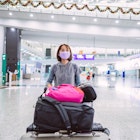
Jan 18, 2022 • 7 min read

Dec 16, 2021 • 2 min read

Dec 8, 2021 • 4 min read
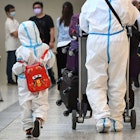
Nov 30, 2021 • 6 min read
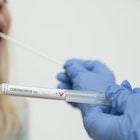
Nov 2, 2021 • 3 min read

Sep 1, 2021 • 1 min read
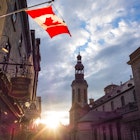
Aug 11, 2021 • 3 min read

Apr 29, 2024 • 5 min read
- Credit cards
- View all credit cards
- Banking guide
- Loans guide
- Insurance guide
- Personal finance
- View all personal finance
- Small business
- Small business guide
- View all taxes
You’re our first priority. Every time.
We believe everyone should be able to make financial decisions with confidence. And while our site doesn’t feature every company or financial product available on the market, we’re proud that the guidance we offer, the information we provide and the tools we create are objective, independent, straightforward — and free.
So how do we make money? Our partners compensate us. This may influence which products we review and write about (and where those products appear on the site), but it in no way affects our recommendations or advice, which are grounded in thousands of hours of research. Our partners cannot pay us to guarantee favorable reviews of their products or services. Here is a list of our partners .
Can Americans Travel to Canada?

Many or all of the products featured here are from our partners who compensate us. This influences which products we write about and where and how the product appears on a page. However, this does not influence our evaluations. Our opinions are our own. Here is a list of our partners and here's how we make money .
Editor's note: Effective Oct. 1, 2022 all previous border measures to enter Canada have ended.
Traveling in the COVID era comes with all sorts of questions, logistics and concerns that travelers didn't think about before 2020. Traveling to Canada, despite its proximity to the U.S., has been no different.
In March 2020, the U.S. and Canada both closed their land borders to nonessential travel due to COVID-19. What started as a monthlong closure was extended 18 times.
So, if you gave up following the news or tracking border rules, you might be wondering: Can Americans travel to Canada? As of Oct. 1, the answer is yes, with no COVID-related restrictions.
Here's what Americans need to know about traveling to Canada.
What do Americans need to enter Canada?
As a U.S. citizen, you will need to provide proof of citizenship and identity to enter Canada. This can include a U.S. passport , passport card or a NEXUS card . No visa is required as long as your stay is under 180 days.
While the border between the U.S. and Canada reopened for nonessential travel in both directions in November 2021, several COVID-related protocols remained in place for entry until October 2022. Those rules have now been lifted.
Do you need to be vaccinated to enter Canada?
According to the Canadian government travel website, vaccination is no longer required to enter the country.
Previous policies including mandatory use of the ArriveCAN app, proof of vaccination, pre- or on-arrival testing, quarantine and health checks have also been lifted.
» Learn more: How to travel to Toronto on points and miles
Do you have to wear a mask on a plane to Canada?
In mid-2022, many Americans may have been surprised to find that they were required to wear a mask on all flights to and from Canada (flights throughout the U.S. had lifted that restriction). However, as part of the Oct. 1 policy changes, masks are no longer required on planes or trains in Canada.
Can unvaccinated people travel to Canada?
As of Oct. 1, 2022, you can travel to Canada unvaccinated as travel restrictions have been lifted.
» Learn more: TSA PreCheck or Global Entry — Which is right for you?
If you’re planning to travel to Canada
Travel to Canada is back to pre-pandemic rules which simply require U.S. citizens to provide valid proof of citizenship and identification using a passport, passport card or NEXUS card for stays under 180 days. Standard customs and immigration paperwork will still be required, as has always been the case for travel into Canada.

How to maximize your rewards
You want a travel credit card that prioritizes what’s important to you. Here are our picks for the best travel credit cards of 2024 , including those best for:
Flexibility, point transfers and a large bonus: Chase Sapphire Preferred® Card
No annual fee: Bank of America® Travel Rewards credit card
Flat-rate travel rewards: Capital One Venture Rewards Credit Card
Bonus travel rewards and high-end perks: Chase Sapphire Reserve®
Luxury perks: The Platinum Card® from American Express
Business travelers: Ink Business Preferred® Credit Card

on Chase's website
1x-5x 5x on travel purchased through Chase Travel℠, 3x on dining, select streaming services and online groceries, 2x on all other travel purchases, 1x on all other purchases.
60,000 Earn 60,000 bonus points after you spend $4,000 on purchases in the first 3 months from account opening. That's $750 when you redeem through Chase Travel℠.

1.5%-6.5% Enjoy 6.5% cash back on travel purchased through Chase Travel; 4.5% cash back on drugstore purchases and dining at restaurants, including takeout and eligible delivery service, and 3% on all other purchases (on up to $20,000 spent in the first year). After your first year or $20,000 spent, enjoy 5% cash back on travel purchased through Chase Travel, 3% cash back on drugstore purchases and dining at restaurants, including takeout and eligible delivery service, and unlimited 1.5% cash back on all other purchases.
$300 Earn an additional 1.5% cash back on everything you buy (on up to $20,000 spent in the first year) - worth up to $300 cash back!

on Capital One's website
2x-5x Earn unlimited 2X miles on every purchase, every day. Earn 5X miles on hotels and rental cars booked through Capital One Travel, where you'll get Capital One's best prices on thousands of trip options.
75,000 Enjoy a one-time bonus of 75,000 miles once you spend $4,000 on purchases within 3 months from account opening, equal to $750 in travel.

Update April 12, 2024
Information for u.s. citizens in the middle east.
- Travel Advisories |
- Contact Us |
- MyTravelGov |
Find U.S. Embassies & Consulates
Travel.state.gov, congressional liaison, special issuance agency, u.s. passports, international travel, intercountry adoption, international parental child abduction, records and authentications, popular links, travel advisories, mytravelgov, stay connected, legal resources, legal information, info for u.s. law enforcement, replace or certify documents.
Before You Go
Learn About Your Destination
While Abroad
Emergencies
Share this page:
Travel Advisory July 17, 2023
Canada - level 1: exercise normal precautions.
Reissued with obsolete COVID-19 page links removed.
Exercise normal precautions in Canada.
Read the Country Information page for additional information on travel to Canada.
If you decide to travel to Canada:
- Enroll in the Smart Traveler Enrollment Program (STEP) to receive Alerts and make it easier to locate you in an emergency.
- Follow the Department of State on Facebook and Twitter .
- Review the Country Security Report for Canada.
- Prepare a contingency plan for emergency situations. Review the Traveler’s Checklist .
- Visit the CDC page for the latest Travel Health Information related to your travel. Exercise normal precautions in Canada.
Embassy Messages
View Alerts and Messages Archive
Quick Facts
Valid at time of entry
One page required.
Not required for stays under 180 days
Embassies and Consulates
U.S. Embassy Ottawa
490 Sussex Drive Ottawa, Ontario K1N 1G8 Canada Telephone: +1 (613) 688-5335 Emergency After-Hours Telephone: +1 (613) 238-5335 Fax: +1 (613) 688-3082 Email: [email protected]
The Ottawa consular district includes the counties of Kingston, Lanark, Leeds, Prescott, Refrew, Russell, and Stormont in Eastern Ontario, and those parts of the Québec regions of Outaouais and Abitibi-Témiscamingue near Ottawa.
U.S. Consulate General Montreal
1134 Rue Ste- Catherine West Montréal, Quebec H3B 1H4 Canada Telephone: +1 (514) 398-9695 Emergency After-Hours Telephone: +1 (416) 645-9124 Fax: +1 (514) 398-9748 Email: [email protected]
The Montreal consular district includes Greater Montreal and the regions of Southern Quebec Province (Laurentides, Lanaudiere, Laval, Montreal, Montregie, Estrie, and the southern parts of Centre-du-Quebec), including Joliete, Drummondville, and Sherbrooke.
U.S. Consulate General Toronto
360 University Ave Toronto, Ontario M5G 1S4 Canada Telephone: +1 (416) 595-1700 Emergency After-Hours Telephone: +1 (416) 201-4056 Fax: +1 (416) 595-5466 Email: [email protected]
The consular district includes the province of Ontario except for the counties of Kingston, Lanark, Leeds, Prescott, Refrew, Russell, and Stormont, which are served by the U.S. Embassy in Ottawa.
U.S. Consulate General Vancouver
1075 West Pender Street Vancouver, British Columbia V6E 2M6 Canada Telephone: +1 (604) 685-4311 Emergency After-Hours Telephone: +1 (604) 685-4311 Fax: +1 (604) 685-7175 Email: [email protected]
The consular district includes British Columbia and the Yukon Territory.
U.S. Consulate General Halifax
Purdy's Wharf Tower II 1969 Upper Water Street, Suite 904 Halifax, Nova Scotia B3J 3R7 Canada Telephone: +1 (902) 429-2480 Emergency After-Hours Telephone: +1 (902) 429-2480, Press 1 Email: [email protected]
The Halifax consular district includes New Brunswick, Newfoundland and Labrador, Nova Scotia, Prince Edward Island, and the French islands of Saint Pierre and Miquelon.
U.S. Consulate Winnipeg
201 Portage Avenue, Suite 860 Winnipeg, Manitoba R3B 3K6 Canada Telephone: +1 (204) 940-1800 Emergency After-Hours Telephone: +1 (403) 266-8962 and press "0" for assistance (Consulate General Calgary) Fax: +1 (204) 940-1809
The Consulate in Winnipeg provides only emergency services for U.S. citizens. Routine services such as visas, passports and notarials are handled at other U.S. Consulates General, primarily Calgary.
U.S. Consulate General Quebec 2, rue de la Terrasse Dufferin (Vieux Quebec, behind Chateau Frontenac) Quebec, Quebec G1R 4T9 Canada Telephone: +1 (418) 692-2095 Emergency After-Hours Telephone: +1 (418) 692-2096 Fax: +1 (418) 692-4640 Email: [email protected]
The consular district includes Quebec City and those regions of Quebec Province to the North and East of the Montreal and Ottawa Districts (indicated above) – to include the area around Saguenay/Lac Saint-Jean, Rimouski and the Gaspé Peninsula – as well as the Territory of Nunavut.
U.S. Consulate General Calgary 615 Macleod Trail S.E., 10th Floor Calgary, Alberta T2G 4T8 Canada Telephone: +1 (403) 266-8962 Fax: +1 (403) 264-6630 Email: [email protected] The consular district includes Alberta, Manitoba, Saskatchewan, and the Northwest Territories, excluding Nunavut.
Destination Description
Learn about the U.S. relationship to countries around the world.
Entry, Exit and Visa Requirements
For tourist visits to Canada of less than 180 days, U.S. citizens do not need visas. Other types of travel generally require visas. Visit the Immigration, Refugees and Citizenship Canada (IRCC) website for current information.
If you have a criminal record, you may be unable to enter Canada. To determine whether you are criminally inadmissible and get information about how to overcome this finding, refer to the IRCC website . Canada Border Services Agency (CBSA) officials determine if you can enter Canada in accordance with Canadian law.
Travel Programs: Both the U.S. and Canadian governments urge frequent travelers to join the NEXUS trusted traveler program .
Entry into Canada: Canadian law requires that all persons entering Canada carry proof of citizenship and identity. A valid U.S. passport, passport card, or NEXUS card satisfies these requirements for U.S. citizens.
Children under 16 only need proof of U.S. citizenship.
Entry into the United States: When traveling by air from Canada, U.S. citizens must present a U.S. passport book or other approved identification document. The U.S. Customs and Border Protection (CBP) website provides a full list of allowable documents.
Travel with Minors: If you plan to travel to Canada with a minor for whom you do not have full legal custody, CBSA may require a letter of authorization from the minor’s parents or legal guardian(s). Please refer to the CBSA website for more details.
Private Boaters Entering Canada: Canadian law requires all foreign private boaters, including recreational vessels, to present themselves upon their arrival in Canada to the CBSA. See the CBSA website for relevant reporting requirements.
Private Boaters Exiting Canada: Boaters may report their arrival to the United States or apply for a registered boater program using the CBP Reporting Offsite Arrival – Mobile (CBP ROAM) app. Please visit the CBP ROAM webpage for more information.
The U.S. Department of State is unaware of any HIV/AIDS entry restrictions for visitors to Canada. For information on restrictions for HIV positive foreign residents of Canada visit the IRCC website .
Find information on dual nationality , prevention of international child abduction and customs regulations on our websites.
Safety and Security
911 is the emergency telephone number in Canada.
Crime: Although Canada generally has a lower crime rate than the United States, violent crimes occur throughout the country, especially in urban areas. Criminals may target parked cars, especially in large cities and popular tourist destination, for opportunistic smash-and-grab thefts. Do not leave unattended possessions in a vehicle, even in the trunk. Some jurisdictions such as Montreal, Toronto, and Vancouver may fine you for leaving your car doors unlocked or for leaving valuables in view. Pickpockets may target you, especially in popular tourist areas. Exercise caution. Safeguard yourself and your property.
Demonstrations occur frequently. They may take place in response to political or economic issues, on politically significant holidays, and during international events.
- Demonstrations can be unpredictable, avoid areas around protests and demonstrations.
- Check local media for updates and traffic advisories.
While there is a very small likelihood of violence at a political gathering in Canada, we strongly encourage U.S. citizens to avoid all protests and demonstrations and maintain a high level of vigilance and practice good situational awareness when traveling abroad.
International Financial Scams: See the Department of State and the FBI pages for information.
Victims of Crime: U.S. citizen victims of sexual assault are encouraged to contact the U.S. Embassy for assistance. Report crimes to the local police at 911 and contact the U.S. Embassy at +1(613) 688-5335. Remember that local authorities are responsible for investigating and prosecuting crime.
See our webpage on help for U.S. victims of crime overseas .
• Help you find appropriate medical care
• Assist you in reporting a crime to the police
• Contact relatives or friends with your written consent
• Provide general information regarding the victim’s role during the local investigation and following its conclusion
• Provide a list of local attorneys
• Provide our information on victim’s compensation programs in the U.S.
• Provide an emergency loan for repatriation to the United States and/or limited medical support in cases of destitution
• Help you find accommodation and arrange flights home
• Replace a stolen or lost passport
Domestic Violence: U.S. citizen victims of domestic violence are encouraged to contact the U.S. Embassy or Consulates for assistance.
Tourism: The tourism industry is generally regulated and rules with regard to best practices and safety inspections are regularly enforced. Hazardous areas/activities are identified with appropriate signage and professional staff is typically on hand in support of organized activities. In the event of an injury, appropriate medical treatment is widely available throughout the country.
Outside of a major metropolitan center, it may take more time for first responders and medical professionals to stabilize a patient and provide life-saving assistance. If you are considering travel outside of populated areas, particularly in the northern Arctic territories, you need to know that search and rescue capabilities are limited because of extreme isolation and the harsh climate. You must be prepared for significant delays in receiving emergency assistance in these areas and plan accordingly.
U.S. citizens are encouraged to purchase medical evacuation insurance .
Local Laws & Special Circumstances
Criminal Penalties: You are subject to local laws. If you violate local laws, even unknowingly, you may be expelled, arrested, or imprisoned. Individuals establishing a business or practicing a profession that requires additional permits or licensing should seek information from the competent local authorities, prior to practicing or operating a business.
Furthermore, some laws are also prosecutable in the United States, regardless of local law. For examples, see our website on crimes against minors abroad and the Department of Justice website.
Arrest Notification: If you are arrested or detained, ask police or prison officials to notify the U.S. Embassy immediately. See our webpage for further information.
Controlled Substances: Canadian law prohibits possession and trafficking of controlled substances and narcotics, including some substances that may be legal to possess under the law of certain U.S. states. Canada has legalized the personal consumption of recreational cannabis, but Canadian law prohibits taking cannabis across Canada’s national borders . Drug smugglers risk substantial fines, a permanent bar from Canada, and imprisonment.
Counterfeit and Pirated Goods: Although counterfeit and pirated goods are prevalent in many countries, they may still be illegal according to local laws. You may also pay fines or have to give them up if you bring them back to the United States. See the U.S. Department of Justice website for more information.
Faith-Based Travelers: See the following webpages for details:
- Faith-Based Travel Information
- International Religious Freedom Report – see country reports
- Human Rights Report – see country reports
- Hajj Fact Sheet for Travelers
- Best Practices for Volunteering Abroad
Firearms : Canada controls firearms more strictly than the United States. Violation of firearms restrictions may result in prosecution and imprisonment.
Visitors bringing any firearms or ammunition into Canada must declare the firearms in writing using a Non-Resident Firearm Declaration form. If you plan to borrow and use a firearm in Canada, you must obtain a Temporary Firearms Borrowing License in advance. You must present these forms in triplicate and sign them in front of a CBSA officer at the border. (It is not possible to make photocopies at the border). Full details and downloadable forms are available at the Canadian Firearms Program website .
Canadian law requires officials to confiscate firearms, ammunition, and other weapons from persons crossing the border who do not declare having the items in their possession. Officials will not return confiscated firearms, ammunition, and weapons and possession of any of these items may result in your arrest and imprisonment. You should inspect all belongings thoroughly before traveling to Canada to avoid the accidentally importing firearms, ammunition, or other weapons.
LGBTQI+ Travelers: There are no legal restrictions on same-sex sexual relations or the organization of LGBTQI+ events in Canada. See our LGBTQI+ Travel Information page and section 6 of our Human Rights report for further details.
Pornography: Canada has strict laws concerning child pornography, and in recent years there has been an increase in random checks of electronic media of travelers entering Canada.
Canadian officials may search your computers, cell phones, and other electronic devices without a warrant at the border and illegal content can result in the seizure of the device as well as detention, arrest, and prosecution of the bearer.
Tax Issues: For information on U.S. Federal tax issues, please refer to the Internal Revenue Service (IRS) website for international taxpayers .
- Refer to this link for reporting requirements regarding Foreign Bank and Financial Accounts (FBAR) .
- Refer to this link for information on the Foreign Account Tax Compliance Act (FATCA) .
- Refer to this link for information about the Voluntary Disclosure Practice .
Travelers with Disabilities: The law in Canada prohibitsdiscrimination against persons with physical or mental disabilities and the law is enforced. Social acceptance of persons with disabilities in public is as prevalent as in the United States. For more information, visit the Accessibility Standards Canada website .
Students: See our Students Abroad page and FBI travel tips .
Women Travelers: See our travel tips for Women Travelers .
For emergency services in Canada, dial 911 . Ambulance services are widely available.
We do not pay medical bills. Be aware that U.S. Medicare/Medicaid does not apply overseas. Most hospitals and doctors overseas do not accept U.S. health insurance.
Medical Insurance: Make sure your health insurance plan provides coverage overseas. Most care providers overseas only accept cash payments. See our webpage for more information on insurance coverage. Visit the U.S. Centers for Disease Control and Prevention for more information on type of insurance you should consider before you travel overseas.
We strongly recommend supplemental insurance to cover medical evacuation.
Always carry your prescription medication in original packaging, along with your doctor’s prescription. Check with Health Canada to ensure the medication is legal in Canada.
Healthcare in Canada : The level of public health and sanitation in Canada is high. Adequate health facilities are available throughout Canada. Canada’s medical care is of a high standard but is government controlled. Access to ongoing medical care is difficult for temporary visitors who are not members of a Canadian province’s government-run health care plan. Many physicians will not take new patients. Specialist care is only by referral and may take months to obtain. Although trauma-care is on par with that in the United States, emergency room waits for non-life threatening problems can be very long. Some health care professionals in the Quebec may only speak French.
The U.S. Embassy maintains a list of doctors and hospitals . We do not endorse or recommend any specific medical provider or clinic.
Vaccinations: Be up-to-date on all CDC-recommended vaccinations .
Further health information:
World Health Organization U.S. Centers for Disease Control and Prevention
Air Quality: Visit AirNow Department of State for information on air quality at U.S. Embassies and Consulates.
Medical Tourism and Elective Surgery: We strongly recommend supplemental insurance to cover medical evacuation in the event of unforeseen medical complications.
Pharmaceuticals: U.S. Customs and Border Protection and the Food and Drug Administration are responsible for rules governing the transport of medication back to the United States. Medication purchased abroad must meet their requirements to be legally brought back into the United States. Medication should be for personal use and must be approved for usage in the United States. Please visit the U.S. Customs and Border Protection and the Food and Drug Administration websites for more information.
Assisted Reproductive Technology and Surrogacy: If you are considering traveling to Canada to have a child through use of assisted reproductive technology (ART) or surrogacy, please see our ART and Surrogacy Abroad page .
Travel and Transportation
Road Conditions and Safety: As in the United States, all emergency assistance in Canada can be reached by dialing 911.
For detailed information on road conditions throughout Canada, as well as links to provincial government websites, please see the Transport Canada website or the Canadian Automobile Association (CAA) website. The CAA honors American Automobile Association memberships. Automobile warranties of vehicles purchased in the United States may not be valid in Canada.
Winter travel can be dangerous due to heavy snowfalls and hazardous icy conditions. Some provinces require snow tires. CAA has tips for winter driving . Both winter conditions and wildfires may prompt the sudden closure of highways. Provincial ministries of transport typically post closures and other alerts about road conditions on their websites.
Traffic Laws: Driving in Canada is similar to driving in many parts of the United States. Distances and speeds, however, are posted in kilometers per hour and some signs, particularly in Québec, may only be in French. U.S. driver’s licenses are valid for visitors in Canada. Proof of auto insurance is required. U.S. auto insurance is accepted for tourists in Canada. For specific information concerning Canadian driving permits, mandatory insurance, and entry regulations, please contact the Canadian National Tourist Organization .
Some provinces require drivers to keep their vehicles’ headlights on during the day and some have banned driving while using a hand-held cell phone. Motorcycles cannot share a lane, and safety helmets for motorcycle riders and passengers are mandatory.
It is illegal to take automobile radar detectors into Québec, Ontario, Manitoba, the Yukon, or the Northwest Territories, regardless of whether they are used. Police may confiscate radar detectors and impose substantial fines.
Drivers approaching border crossings into the United States may encounter traffic backups. Drivers should be alert, as lane restrictions at border approaches exist for drivers in NEXUS and FAST expedited inspection programs.
Public Transportation: Public transportation options vary across Canada, but all cities and most major towns have a public transit system .
Aviation Safety Oversight: The U.S. Federal Aviation Administration (FAA) has assessed the government of Canada’s Civil Aviation Authority as being in compliance with International Civil Aviation Organization (ICAO) aviation safety standards for oversight of Canada’s air carrier operations. Further information may be found on the FAA’s safety assessment page .
Maritime Travel: Mariners planning travel to Canada should also check for U.S. maritime advisories and alerts . Information may also be posted to the U.S. Coast Guard homeport website , and the NGA broadcast warnings .
For additional travel information
- Enroll in the Smart Traveler Enrollment Program (STEP) to receive security messages and make it easier to locate you in an emergency.
- Call us in Washington, D.C. at 1-888-407-4747 (toll-free in the United States and Canada) or 1-202-501-4444 (from all other countries) from 8:00 a.m. to 8:00 p.m., Eastern Standard Time, Monday through Friday (except U.S. federal holidays).
- See the State Department’s travel website for the Worldwide Caution and Travel Advisories .
- Follow us on Twitter and Facebook .
- See traveling safely abroad for useful travel tips.
Review information about International Parental Child Abduction in Canada . For additional IPCA-related information, please see the International Child Abduction Prevention and Return Act ( ICAPRA ) report.
Travel Advisory Levels
Assistance for u.s. citizens, learn about your destination, enroll in step.

Subscribe to get up-to-date safety and security information and help us reach you in an emergency abroad.
Recommended Web Browsers: Microsoft Edge or Google Chrome.
Check passport expiration dates carefully for all travelers! Children’s passports are issued for 5 years, adult passports for 10 years.
Afghanistan
Antigua and Barbuda
Bonaire, Sint Eustatius, and Saba
Bosnia and Herzegovina
British Virgin Islands
Burkina Faso
Burma (Myanmar)
Cayman Islands
Central African Republic
Cote d Ivoire
Curaçao
Czech Republic
Democratic Republic of the Congo
Dominican Republic
El Salvador
Equatorial Guinea
Eswatini (Swaziland)
Falkland Islands
France (includes Monaco)
French Guiana
French Polynesia
French West Indies
Guadeloupe, Martinique, Saint Martin, and Saint Barthélemy (French West Indies)
Guinea-Bissau
Isle of Man
Israel, The West Bank and Gaza
Liechtenstein
Marshall Islands
Netherlands
New Caledonia
New Zealand
North Korea (Democratic People's Republic of Korea)
Papua New Guinea
Philippines
Republic of North Macedonia
Republic of the Congo
Saint Kitts and Nevis
Saint Lucia
Saint Vincent and the Grenadines
Sao Tome and Principe
Saudi Arabia
Sierra Leone
Sint Maarten
Solomon Islands
South Africa
South Korea
South Sudan
Switzerland
The Bahamas
Timor-Leste
Trinidad and Tobago
Turkmenistan
Turks and Caicos Islands
United Arab Emirates
United Kingdom
Vatican City (Holy See)
External Link
You are about to leave travel.state.gov for an external website that is not maintained by the U.S. Department of State.
Links to external websites are provided as a convenience and should not be construed as an endorsement by the U.S. Department of State of the views or products contained therein. If you wish to remain on travel.state.gov, click the "cancel" message.
You are about to visit:
Cookies on GOV.UK
We use some essential cookies to make this website work.
We’d like to set additional cookies to understand how you use GOV.UK, remember your settings and improve government services.
We also use cookies set by other sites to help us deliver content from their services.
You have accepted additional cookies. You can change your cookie settings at any time.
You have rejected additional cookies. You can change your cookie settings at any time.
- Passports, travel and living abroad
- Travel abroad
- Foreign travel advice
Entry requirements
This information is for people travelling on a full ‘British citizen’ passport from the UK. It is based on the UK government’s understanding of the current rules for the most common types of travel.
The authorities in Canada set and enforce entry rules. If you’re not sure how these requirements apply to you, contact the Canadian High Commission in the UK .
COVID-19 rules
There are no COVID-19 testing or vaccination requirements for travellers entering Canada.
Passport validity requirements
To enter Canada, your passport must be valid for the length of your planned stay.
If you’re travelling through another country on your way to or from Canada, check the entry requirements for that country. Many countries will only allow entry if you have at least 6 months validity remaining on your passport.
Visa requirements
To enter or transit through Canada, most people need a visa or an Electronic Travel Authorization ( eTA ) – not both.
Check if you need a visa or an eTA online .
You do not need a visa for short visits (normally up to 6 months). You may need an eTA instead.
You do not need an eTA , if you are:
- arriving by land and sea – you must have acceptable travel documents and ID
- a British-Canadian dual national – you must have a valid Canadian passport
See Canada’s entry requirements for full details of eTA and visa requirements.
Contact the Canadian High Commission in the UK if you are unsure about visa requirements or your eligibility to enter the country, for example, if you have a criminal record or have been arrested.
Checks at border control
Canadian border officials may ask you to show a return or onward ticket and proof that you have sufficient funds to support yourself for the duration of your stay, even if you are staying with family or friends.
Visas for permanent residence, study or work
See information on visas for permanent residence, study or work in Canada .
Transiting through Canada
If you are travelling through Canada (transiting) by air, you must have an eTA or a transit visa.
If you have questions, contact:
- your airline
- Immigration, Refugees and Citizenship Canada
- your nearest Canadian high commission, embassy or consulate
Find out more about transiting Canada .
Visa and eTA scams
Some unauthorised websites charge for submitting visa applications. These websites are not associated with the Canadian government.
You can check your eTA status online with the Canadian government . If it has been 72 hours since you applied, and you have not received confirmation of your application, complete an enquiry form .
Travelling with children
If a child travels alone or with only one parent or legal guardian, they should carry a letter of consent from the non-travelling parents or guardians. Immigration officers have the right to question children using simple and appropriate language to see if there are any concerns about child abduction.
For more information, check with the Canadian High Commission in the UK or the Canada Border Services Agency .
Vaccine requirements
For details about medical entry requirements and recommended vaccinations, see TravelHealthPro’s Canada guide .
Customs rules
There are strict rules about goods that can be taken into and out of Canada . You must declare anything that may be prohibited or subject to tax or duty.
The Canadian authorities will confiscate banned food products and you could get a fine. For more information, see importing food, plants or animals to Canada .
If you visit a farm or have contact with wild animals before entering Canada, and plan to visit a farm during your stay, you must declare this on your Customs Declaration Card. For more information, see biosecurity at the Canadian border .
Related content
Is this page useful.
- Yes this page is useful
- No this page is not useful
Help us improve GOV.UK
Don’t include personal or financial information like your National Insurance number or credit card details.
To help us improve GOV.UK, we’d like to know more about your visit today. We’ll send you a link to a feedback form. It will take only 2 minutes to fill in. Don’t worry we won’t send you spam or share your email address with anyone.
Language selection
- Français fr
Routine childhood vaccinations (fact sheet)
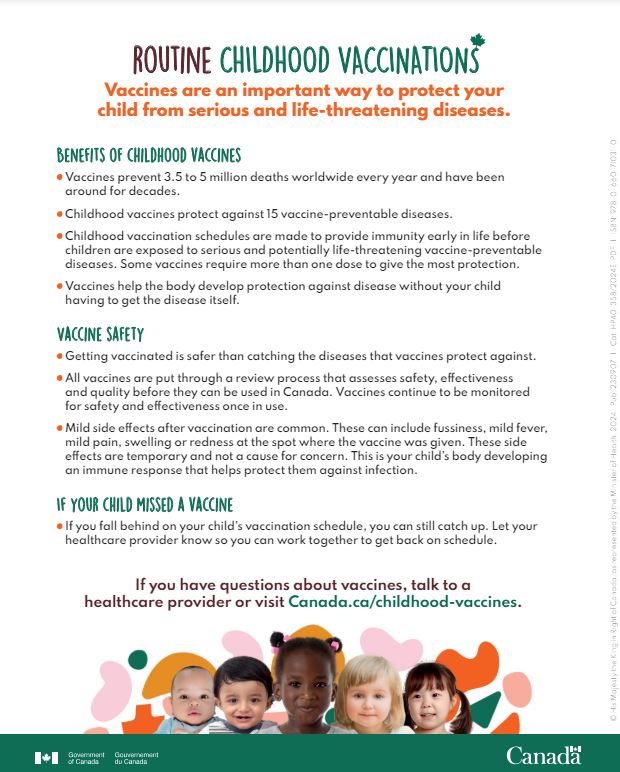
Download the alternative format (PDF format, 324 KB, 1 pages)
Organization: Public Health Agency Of Canada
Published: 2024-04-19
Vaccines are an important way to protect your child from serious and life-threatening diseases.
Benefits of childhood vaccines
Vaccines prevent 3.5 to 5 million deaths worldwide every year and have been around for decades.
Childhood vaccines protect against 15 vaccine-preventable diseases.
Childhood vaccination schedules are made to provide immunity early in life before children are exposure to serious and potentially life-threatening vaccine-preventable diseases. Some vaccines require more than one dose to give the most protection.
Vaccines help the body develop protection against disease without your child having to get the disease itself.
Vaccine safety
Getting vaccinated is safer than catching the diseases that vaccines protect against.
All vaccines are put through a review process that assesses safety, effectiveness and quality before they can be used in Canada. Vaccines continue to be monitored for safety and effectiveness once in use.
Mild side effects after vaccination are common. These can include fussiness, mild fever, mild pain, swelling or redness at the spot where the vaccine was given. These side effects are temporary and not a cause for concern. This is your child's body developing an immune response that helps protect them against infection.
If your child missed a vaccine
If you fall behind on your child's vaccination schedule, you can still catch up. Let your health care provider know so you can work together to get back on schedule.
If you have questions about vaccines, talk to a health care provider or learn how to protect your child with routine vaccination .
Page details
As national measles vaccine shortage extends another month, some travel to U.S.
Supplier merck canada now lists estimated end date for shortage as may 17.

Social Sharing
A national shortage of measles vaccines will continue for at least another month.
That means most people born before 1970 won't be able to follow public health advice and get a shot before travel outside Canada — unless they cross the border to get the shot.
Some New Brunswickers have been doing just that, according to Joleen Fowler, a pharmacy technician at Walgreens in Calais, Maine.
"We've had a few people come over and ask, you know, if they were able to get it from us, and we were able to oblige," she said.
Merck, Canada's supplier, had expected the shortage of its MMR II vaccine, for measles, mumps and rubella, for the private market such as travel clinics, to end by April 19 , but now lists May 15 as the estimated end date on Health Canada's Drug Shortages website.
- Canada faces shortage of measles vaccines amid rise in cases, demand
Merck has also posted an anticipated shortage of its ProQuad vaccine from April 26 until Aug. 30. ProQuad is used for the prevention of measles, mumps, rubella, and chickenpox in children between 12 months and 12 years old.
An increase in demand for measles vaccines, due to a rise in cases and outbreaks across the country and the world, led to the shortage, Merck Canada said in an email to CBC News Friday.
Remaining doses of the company's measles vaccines are being reserved for publicly funded childhood immunization programs.
Working to ensure consistent supply for public programs
Asked whether Merck still expects to be able to fully meet the demands of these public immunization programs, the company replied via email: "We continue to work diligently with all relevant stakeholders, including provincial and federal health authorities, to provide a consistent supply of MMR®II vaccines in a timely manner.
"Our priority remains firmly focused on ensuring the availability of this vaccine to those who need it the most."
Canada's other measles vaccine supplier, GSK, continues to meet the public market demand for its vaccine Priorix, and its current supply is allocated to fulfilling contractual commitments in Canada for 2024, according to spokesperson Rita Moutinho.
Although GSK does not supply the private market with its Priorix vaccine, it too has posted a shortage report to proactively indicate it cannot fulfil private orders. Its estimated end date is listed as unknown.

Measles: Understanding the most contagious preventable disease | About That
Both Merck and GSK "have confirmed they continue to meet the demand for Canada's public immunization programs," said Health Canada spokesperson Nicholas Janveau.
According to Health Canada's website, "There is enough supply of the measles-containing vaccine and post-exposure prophylaxis to support targeted vaccination campaigns and manage a measles outbreak."
The private market for measles vaccines "makes up a very small portion of the overall demand," it says.
"Health Canada and the Public Health Agency of Canada continue to work closely with the manufacturers, provinces and territories and stakeholders to monitor supply and identify options to mitigate the impact of the shortage," Janveau said in an emailed statement. He did not elaborate.
Public health recommendations
The Public Health Agency of Canada recommends people born before 1970 get at least one dose before any international travel, amid an increase in cases in many parts of the world.
This dose is not currently publicly funded, as these people have been considered immune from past exposure to the measles virus.
People born after 1970 should have two vaccine doses, the Public Health Agency of Canada says.

Major measles outbreak expected without better vaccination rates, modelling shows
Measles is a highly contagious disease that can cause serious illness and severe complications, including deafness, brain damage and even death.
The virus is transmitted through the air when an infected person breathes, coughs, sneezes or talks, or by direct contact with infected nasal or throat secretions.
Costs about $250 in Calais
The New Brunswickers who have visited Walgreens in Calais said they were having a hard time getting the vaccine at home, said Fowler.
"The ones that I can recall, they had mentioned that they had tried to go [to] Saint John or Fredericton and were unable to get the vaccine in either area," she said.
"They didn't say where they were going, they just said that they were trying to travel overseas and so they needed to get the measles vaccine in order to do so."

They were grateful to get the shot, said Fowler, and didn't mind paying the roughly $110 US, plus another estimated $70 for the administration fee. That's about $250 Cdn.
People don't need an appointment or any medical records, she said. They just need to fill out a questionnaire for the pharmacist to review.
Being fully vaccinated almost 100% effective
Measles typically starts with cold-like symptoms, such as fever, cough, red, watery eyes, and runny nose.
About three to seven days after symptoms begin, a rash that looks like small red spots appears. It usually starts on the head/neck and spreads down the body, arms and legs.
Having two doses of a measles-containing vaccine after one year of age is almost 100 per cent effective at preventing measles , according to the Public Health Agency of Canada.
In New Brunswick, children are covered to get two doses of a combined measles, mumps, rubella and varicella (MMRV) vaccine, at 12 and 18 months.
Adults born in 1970 or later who haven't received two doses are also covered.
In addition, children aged six to 11 months are also eligible to get one dose now, if they're going to travel outside the country.
Related Stories
- Video Quebec successfully pushes back against rise in measles cases
- Second Opinion Canada heading toward major measles outbreak without vaccine boost, new modelling suggests
- Even people born before 1970 are encouraged to get measles shot for international travel
- Everything you need to know about protecting yourself against measles
- N.B.'s top doctor warns of March break measles risk
- Make sure you have 2 measles shots before you travel on spring break, says Canada's top doctor
- Company History
- Mission Statement
- Philippines
- South Africa
- Afghanistan
- American Samoa
- Antigua and Barbuda
- British Virgin Islands
- Burkina Faso
- Canary Islands
- Cayman Islands
- Central African Republic
- Christmas Island
- Cocos (Keeling) Islands
- Cook Islands
- Cote d'Ivoire
- Democratic Republic of the Congo
- Dominican Republic
- Easter Island
- El Salvador
- Equatorial Guinea
- Falkland Islands
- Faroe Islands
- French Guiana
- French Polynesia
- Guinea-Bissau
- Liechtenstein
- Madeira Islands
- Marshall Islands
- Netherlands
- New Caledonia
- New Zealand
- Norfolk Island
- North Korea
- North Macedonia
- Northern Mariana Islands
- Palestinian Territories
- Papua New Guinea
- Pitcairn Islands
- Puerto Rico
- Republic of the Congo
- Saint Barthelemy
- Saint Helena
- Saint Kitts and Nevis
- Saint Lucia
- Saint Martin
- Saint Pierre-et-Miquelon
- Saint Vincent and the Grenadines
- Sao Tome and Principe
- Saudi Arabia
- Sierra Leone
- Sint Eustatius
- Solomon Islands
- South Georgia and the South Sandwich Islands
- South Korea
- South Sudan
- Switzerland
- Trinidad and Tobago
- Turkmenistan
- Turks and Caicos Islands
- U.S. Virgin Islands
- United Arab Emirates
- United Kingdom
- United States
- Wake Island
- Western Sahara
- Travel Vaccines
- Travel Health Consultations
- Travellers’ Diarrhea Kits
- Dengue Fever Prevention
- Malaria Prevention
- Chikungunya Prevention
- Zika Prevention
- Ebola Virus
- Yellow Fever
- Hepatitis A
- Japanese Encephalitis
- Hepatitis B
- Tickborne Encephalitis (TBE)
- Tetanus-Diphtheria-Pertussis
- Measles-Mumps-Rubella
- Influenza (Flu)
- Blood Tests
- Vitamin Injections
- Physician Referral Program
- London – Euston Travel Clinic

Travel Vaccines and Advice for Canada

Canada is the largest country in North America and the second largest in the world. The country is incredibly diverse in its people, history, and geography. Travellers can go surfing in Tofino, dog sledge in the Northwest, learn the old history of Quebec, or meet people from all over the world in Toronto.
Canada can accommodate any type of traveller, from the adventurous to the history buff.
Do I Need Vaccines for Canada?
Yes, some vaccines are recommended or required for Canada. The National Travel Health Network and Centre and WHO recommend the following vaccinations for Canada: COVID-19 , rabies and tetanus .
See the bullets below to learn more about some of these key immunisations:
- COVID-19 – Airborne – Recommended for all travellers
- Tetanus – Wounds or Breaks in Skin – Recommended for travelers to most regions, especially if not previously vaccinated.
- Rabies – Saliva of Infected Animals – Moderate risk country. Vaccine recommended for long-stay travellers and those who may come in contact with animals.
See the tables below for more information:
Some parts of Canada, especially western Canada, have had measles and mumps outbreaks in recent months. Ensure your vaccinations are up-to-date before travelling.
See our vaccinations page to learn more about these infections and vaccines. Ready to protect yourself? Book your travel health appointment today by calling or schedule online now .
Do I Need a Passport or Visa for Canada?
While a visa is not required, an Electronic Travel Authorisation is. This can be completed through the Canadian government website. Passports must be valid for the duration of stay.
Sources: Embassy of Canada and GOV.UK
What Is the Climate Like in Canada?
Canada’s climate is nearly as diverse as its attractions. Ensure you bring what you need for your trip.
- Toronto – This city’s climate is moderated by Lake Ontario. It is warm and humid in the summers and cold in the winter. There is snow on the ground most days during the months between December and March.
- Edmonton – In Edmonton it is sunny, even in the winter. The climate is dry, with rain in the summer. The summer is cool and winters and very cold. Snow with a depth greater than 1 cm occurs about 141 days each year.
- Ottawa – Ottawa has warm and humid summers, and very cold winters. In the summer, the temperature reaches upward of 25. But, winter can be cold and well below freezing.
How Safe Is Canada?
Canada has relatively low crime rate. But, violent crimes and crimes of convenience do occur, particularly in urban areas. Travellers should take precautions when visiting large cities or when travelling at night. Take measures to safeguard belongings, especially in public areas.
Visiting the Canadian Rockies
The Canadian Rockies have gorgeous wildlife and scenery and tonnes of outdoor activities. Travellers can do all kinds of activities including: whitewater rafting, back country skiing, or rock climbing. Nearly every traveller will find something to suit his or her needs.
What Should I Take to Canada?
Ensure you bring these key items with you on your trip to Canada:
- Warm Clothing – Winters get incredibly cold in Canada, so a good, thick jacket is a necessity. Your extremities tend to get colder faster, so bring a pair of thick gloves if you plan on playing in the snow.
- Hiking Shoes – There is a lot of hiking that can be done throughout the country. If you plan on exploring the outdoors, good shoes will be imperative.
- Umbrella – If you’re visiting when it is expected to rain, an umbrella or raincoat will keep you dry.
Embassy of the United Kingdom in Canada
If you are in Canada and have an emergency (for example, been attacked, arrested or someone has died) contact the nearest consular services. Contact the embassy before arrival if you have additional questions on entry requirements, safety concerns or are in need of assistance.
British High Commission Ottawa 80 Elgin Street Ottawa Ontario K1P 5K7 Canada Telephone: +1 613 237 1530 Emergency Phone: +1 613 237 1530 Email: [email protected]
Stay safe abroad with Passport Health. Ring or book online now and start travelling safely today!
On This Page: Do I Need Vaccines for Canada? What Is the Climate Like in Canada? How Safe Is Canada? Visiting the Canadian Rockies What Should I Take to Canada? Embassy of the United Kingdom in Canada

- Privacy Policy
- Automatic Data Collection Statement
Ottawa injects another $36M into vaccine injury compensation fund
More than 105 million doses of COVID vaccines have been administered since Dec. 14, 2020, and 0.01 per cent led to serious adverse effects, Health Canada data show
Author of the article:
You can save this article by registering for free here . Or sign-in if you have an account.
Article content
OTTAWA — The federal government has added $36.4 million to a program designed to support people who have been seriously injured or killed by vaccines since the end of 2020.
The program was announced shortly after COVID-19 shots first became available to the public, and provides financial compensation to people who were adversely affected by Health Canada-approved vaccines.
Enjoy the latest local, national and international news.
- Exclusive articles by Conrad Black, Barbara Kay, Rex Murphy and others. Plus, special edition NP Platformed and First Reading newsletters and virtual events.
- Unlimited online access to National Post and 15 news sites with one account.
- National Post ePaper, an electronic replica of the print edition to view on any device, share and comment on.
- Daily puzzles including the New York Times Crossword.
- Support local journalism.
Create an account or sign in to continue with your reading experience.
- Access articles from across Canada with one account.
- Share your thoughts and join the conversation in the comments.
- Enjoy additional articles per month.
- Get email updates from your favourite authors.
Don't have an account? Create Account
The Liberals earmarked $75 million for the first five years of the program. To date, a private firm called Oxaro has received $56.2 million from Ottawa to run the program and pay out valid claims that originate outside of Quebec.
As of December, the firm had paid $11.2 million in compensation.
Quebec has had its own vaccine injury compensation program since 1985, and received $7.75 million when the federal program launched.
The Liberal government set aside another $36 million for Oxaro and Quebec to cover the next two years of the program as part of the federal budget tabled in the House of Commons last week.
The Public Health Agency of Canada says it contracted the work to Oxaro to ensure the impartiality of the claims process.
“Oxaro operates independently and at arm’s-length from PHAC,” the agency said in a statement. “This means that PHAC has no involvement in program delivery, including assessment of claims or appeals of claims.”
The cost of the program is dependent on how many people apply for compensation, the agency said.
Get a dash of perspective along with the trending news of the day in a very readable format.
- There was an error, please provide a valid email address.
By signing up you consent to receive the above newsletter from Postmedia Network Inc.
A welcome email is on its way. If you don't see it, please check your junk folder.
The next issue of NP Posted will soon be in your inbox.
We encountered an issue signing you up. Please try again
The distance between the government and the claims process is important, said Dr. Kumanan Wilson, who was vocal in advocating for a vaccine injury program during the pandemic.
“We don’t want the same people potentially advocating for vaccines and working to get higher coverage to be adjudicating these,” said Wilson, a researcher at Bruyere Research Institute in Ottawa.
There were several reasons he advocated for the program, but it became an important part of the social contract during the pandemic, he said.
“There was likely going to be some requirement of vaccination, as there turned out to be, and you were basically asking people to partake in a public good,” he said.
“If they were to partake in a public good and they were hurt in the process, there would be a need for just compensation.”
Though adverse effects associated with the COVID-19 vaccine are rare, there were instances of blood clots linked to the AstraZeneca vaccine and cases of inflammation around the heart muscle connected to the Moderna shot.
As of December, Oxaro has received 2,233 claims and approved 138 of them.
The available statistics do not specify which vaccines were involved.
But there are likely ways to make the program more cost efficient, Wilson said. One of the things he advocated for early on was to streamline similar claims where a causal link between a vaccine and serious injuries is well established, a process already used in the United States.
The same is possible for claims where a risk of injury has been debunked, such as the refuted link between autism and the mumps, measles and rubella vaccine, he added.
“This could reduce some of the administrative burden.”
The program was launched during the COVID-19 pandemic, but covers injuries and deaths associated with vaccines approved for any illness, as long as they were administered after Dec. 8, 2020.
At the time, the department underscored that a serious adverse reaction to a vaccine is extremely rare — affecting less than one in a million people — but that the government has a duty to help if a reaction does happen.
A little less than a year later, Ottawa made it mandatory to be vaccinated against COVID-19 to travel by plane or train, or to work in the federal public service.
To be eligible for compensation, the patient or their beneficiary must be able to prove they suffered a severe, life-threatening or life-altering injury that resulted in a persistent or significant disability, incapacity, a birth defect or death.
More than 105 million doses of COVID-19 vaccines have been administered since Dec. 14, 2020, and 0.01 per cent led to serious adverse effects, Health Canada data show.
Of the 488 deaths reported after people were vaccinated for COVID-19, four were directly linked to the shot, the most recent Health Canada report indicates.
Quebec saw an uptick in claims to its vaccine injury compensation program during the pandemic, from one claim in 2020 to 98 in both 2021 and 2022.
Only three of those cases had been approved for compensation as of March 2023.
Our website is the place for the latest breaking news, exclusive scoops, longreads and provocative commentary. Please bookmark nationalpost.com and sign up for our daily newsletter, Posted, here .
Postmedia is committed to maintaining a lively but civil forum for discussion. Please keep comments relevant and respectful. Comments may take up to an hour to appear on the site. You will receive an email if there is a reply to your comment, an update to a thread you follow or if a user you follow comments. Visit our Community Guidelines for more information.
'What the hell are they thinking?': Poilievre blames Trudeau Liberals for B.C.'s drug decriminalization chaos
India summons canadian diplomat over pro-khalistan separatism slogans at trudeau speech, subscriber only. first reading: the canada-topping global rankings ottawa doesn't want you to know about, colonel charged with making disloyal comments about canadian forces leaders, judge orders reassessment of former chinese spy agency employee's canadian residency bid, the new wave of luxury pools and backyards.
Find out what’s in, what’s out and what’s next
Thoughtful and useful gifts under $75
Not a knick-knack in sight
Advertisement 2 Story continues below This advertisement has not loaded yet, but your article continues below.
Badgley Mischka founders bring celebrity-approved designs to Vancouver
Fashion brand Badgley Mischka has been worn by Beyoncé, Taylor Swift, Helen Mirren and many more.
Phil Rosenthal of Netflix's "Somebody Feed Phil" on his love of travel, food, discovering the unknown
Plus his can't-live-without travel essentials
Walmart makes patio furniture from recycled materials
Stylish and affordable sets for your outdoor space
This website uses cookies to personalize your content (including ads), and allows us to analyze our traffic. Read more about cookies here . By continuing to use our site, you agree to our Terms of Service and Privacy Policy .
You've reached the 20 article limit.
You can manage saved articles in your account.
and save up to 100 articles!
Looks like you've reached your saved article limit!
You can manage your saved articles in your account and clicking the X located at the bottom right of the article.

IMAGES
COMMENTS
Proof of COVID-19 vaccination is not required. Pre-board testing is not required. COVID-19 pre-entry and arrival tests are not required. Quarantine after you enter Canada is not required. Using ArriveCAN is not required, but. to save time at the border, you can use Advance Declaration in ArriveCAN to submit your customs and immigration ...
When travelling outside Canada, you may be at risk for a number of vaccine preventable illnesses. You should consult a health care provider or visit a travel health clinic preferably six weeks before you travel. This is an opportunity to: You may need additional vaccinations depending on your age, planned travel activities and local conditions.
All international travelers should be fully vaccinated against measles with the measles-mumps-rubella (MMR) vaccine, including an early dose for infants 6-11 months, according to CDC's measles vaccination recommendations for international travel. Measles (Rubeola) - CDC Yellow Book. Rabies. Canada is free of dog rabies.
Mandatory vaccination for federally regulated transportation sectors. As announced on August 13, 2021, travellers in the federally regulated air and rail sectors will need to be vaccinated with a COVID-19 vaccine accepted by the Government of Canada for the purpose of travel. After extensive consultations, Transport Canada issued orders and ...
Use Advance Declaration in ArriveCAN to submit your customs and immigration declaration before flying into Canada. Government of Canada's official one-stop-shop for comprehensive international travel information.
Travellers should receive a complete series of COVID-19 vaccine and optimally should receive a booster dose, if they are eligible, at least 2 weeks prior to departure. Travellers should verify the travel requirements in place at their destination (s) and for their return to Canada.
Using the proof of vaccination for travel in Canada. The Canadian COVID-19 proof of vaccination offers multiple benefits and uses, which includes meeting Canada's new traveller vaccine requirements. Effective October 30, 2021, all travellers 12 years of age and older departing from Canadian airports, and travellers on VIA Rail and Rocky ...
On September 7, 2021, provided that Canada's COVID-19 epidemiology remains favourable, the Government intends to open Canada's borders for discretionary travel by travellers from any country who have been fully vaccinated with Government of Canada-accepted vaccines at least 14 days prior to entering Canada and who meet specific entry ...
These requirements are: proof of approved COVID-19 vaccination(s) at least 14 days prior to entry to Canada, proof of a negative COVID-19 PCR test within 72 hours prior to arrival, and submittal of travel information in Canada's ArriveCAN travel app. Travelers must be asymptomatic upon arrival. Travelers are encouraged to hand carry original ...
The Government of Canada is prioritizing the health and safety of everyone in Canada by taking a risk-based and measured approach to re-opening our borders. On September 7, 2021, provided that the domestic epidemiologic situation remains favourable, the Government intends to open Canada's borders to any fully vaccinated travellers who have completed the full course of vaccination with a ...
Beginning Friday, fully vaccinated travellers entering Canada by land or air will no longer need a pre-arrival COVID-19 test. (Rod Gurdebeke/The Canadian Press) As of today, April 1, fully ...
August 11, 2021 - Ottawa - While Canadians should continue to avoid non-essential travel worldwide, the Government of Canada recognizes that proof of vaccination credentials will support the re-opening of societies and economies. Canadians are looking for a more reliable and secure way to demonstrate their COVID-19 vaccination history to foreign and Canadian border officials.
The COVID-19 vaccines used in Canada are effective at preventing severe illness, hospitalization, and death from COVID-19. They can also provide some protection against infection with the virus that causes COVID-19. It is recommended that you delay travel if you have symptoms of COVID-19 until you are feeling better.
The Canadian COVID-19 proof of vaccination is a secure and reliable way to show proof of your COVID-19 vaccination history when you travel outside of Canada. It's meant to simplify and help with border processing abroad. This proof: was developed by provinces and territories with support from the Government of Canada.
If you are an American citizen who wants to enter Canada, you need to know the requirements and procedures for crossing the border. This webpage provides you with the information on what documents you need, how to apply for an eTA or a visa, and what to expect upon arrival. You can also find links to other useful resources on health, taxes, and benefits in Canada.
Specific. Advice. Travellers'. Diarrhea Kits. Available. Canada is the largest country in North America and the second largest in the world. The country is incredibly diverse in its people, history, and geography. Travellers can go surfing in Tofino, dogsled in the Northwest, learn the old history of Quebec, or meet people from all over the ...
The Government of Canada's official source of travel information and advice, the Travel Advice and Advisories help you to make informed decisions and travel safely while you are outside Canada. Check the page for your destination often, because safety and security conditions may change. See Travel Advice and Advisories - FAQ for more ...
Step 1. Pre-arrival: Use Advance Declaration or complete a Declaration Card. If you're arriving by air at one of Canada's participating international airports, you can save time at the border. Submit your customs and immigration declaration online using Advance Declaration up to 72 hours before you arrive in Canada.
Ontario and British Columbia are the latest Canadian provinces to mandate vaccine passports as a condition of entry to restaurants, entertainment and leisure venues. It comes a week after Canada opened to fully vaccinated international travelers as it further relaxed its COVID-19 border rules. Now the doors are open, tourists are gradually returning to explore Canada's cities, national parks ...
As a U.S. citizen, you will need to provide proof of citizenship and identity to enter Canada. This can include a U.S. passport, passport card or a NEXUS card. No visa is required as long as your ...
Call us in Washington, D.C. at 1-888-407-4747 (toll-free in the United States and Canada) or 1-202-501-4444 (from all other countries) from 8:00 a.m. to 8:00 p.m., Eastern Standard Time, Monday through Friday (except U.S. federal holidays). See the State Department's travel website for the Worldwide Caution and Travel Advisories.
Passport validity requirements. To enter Canada, your passport must be valid for the length of your planned stay. If you're travelling through another country on your way to or from Canada ...
Vaccines prevent 3.5 to 5 million deaths worldwide every year and have been around for decades. Childhood vaccines protect against 15 vaccine-preventable diseases. Childhood vaccination schedules are made to provide immunity early in life before children are exposure to serious and potentially life-threatening vaccine-preventable diseases.
Merck, Canada's supplier, had expected the shortage of its MMR II vaccine, for measles, mumps and rubella, for the private market such as travel clinics, to end by April 19, but now lists May 15 ...
Specific. Advice. Travellers'. Diarrhea Kits. Available. Canada is the largest country in North America and the second largest in the world. The country is incredibly diverse in its people, history, and geography. Travellers can go surfing in Tofino, dog sledge in the Northwest, learn the old history of Quebec, or meet people from all over ...
More than 105 million doses of COVID vaccines have been administered since Dec. 14, 2020, and 0.01 per cent led to serious adverse effects, Health Canada data show Author of the article: You can ...